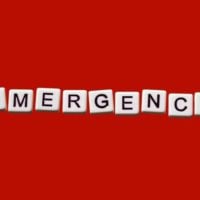Deadline: 07-Oct-21
European Commission is calling for proposals for New Ways of Participatory Management and Sustainable Financing of museums and other cultural institutions.
Scope
- Museums and other cultural institutions (such as libraries, galleries, archives, memorial sites, etc.) play a key-role in social inclusion and cohesion. They create the sense of belonging, build shared identities, promote cultural awareness and historical reflection, improve people’s well-being and contribute to sustainable development and growth at local, regional and national level.
- Nowadays, museums and other cultural institutions are facing several challenges such as scarce funding, new legal obligations with regard to their collections (e.g. related to intellectual property rights), insufficient numbers of visitors or, to the other extreme, massive tourist crowds, which necessitate new and expensive conservation means and security tools.
- All these challenges are threatening the existence and efficient work of museums and other cultural institutions.
- Adding to the aforementioned challenges, the lockdown during the COVID-19 pandemic has heavily affected museums, other cultural institutions, arts and the entire ecosystem around them.
- Museums closed down for months, leaving staff unemployed and putting at risk cultural goods, as forced closing and absence of curators can severely impact the conservation and safety of collections.
Funding Information
Grant amount is equal to or greater than EUR 500 000 except for:
- public bodies (entities established as a public body under national law, including local, regional or national authorities) or international organisations; and
- cases where the individual requested grant amount is not more than EUR 60 000 (lowvalue grant).
Expected Outcomes
Projects should contribute to at least two of the following expected outcomes:
- Explore new ways of participatory cultural management and sustainable financing for museums and other cultural institutions, in particular during and after times of crises such as the coronavirus pandemic.
- Ensure better access to cultural heritage and engagement with local communities, to preserve and strengthen social cohesion through inclusive and participatory procedures.
- Strengthen the sense of belonging to a common European space while respecting cultural and ethnolinguistic diversity, as well as developing an awareness of cultural pluralism.
- Promote the role of museums and other cultural institutions in well-being, health, resilience, social inclusion and society’s dealing with trauma and post-crisis recovery.
- Foster the role of museums and other cultural institutions in sustainable economic growth and regional development.
Eligibility Criteria
- Any legal entity, regardless of its place of establishment, including legal entities from non-associated third countries or international organisations (including international European research organisations) is eligible to participate (whether it is eligible for funding or not), provided that the conditions laid down in the Horizon Europe Regulation have been met, along with any other conditions laid down in the specific call topic.
- A ‘legal entity’ means any natural or legal person created and recognised as such under national law, EU law or international law, which has legal personality and which may, acting in its own name, exercise rights and be subject to obligations, or an entity without legal personality.
- To be eligible for funding, applicants must be established in one of the eligible countries, i.e:
- the Member States of the European Union, including their outermost regions;
- the Overseas Countries and Territories (OCTs) linked to the Member States;
- eligible non-EU countries:
- countries associated to Horizon Europe
- low- and middle-income countries
For more information, visit https://bit.ly/3hlu5c4









































